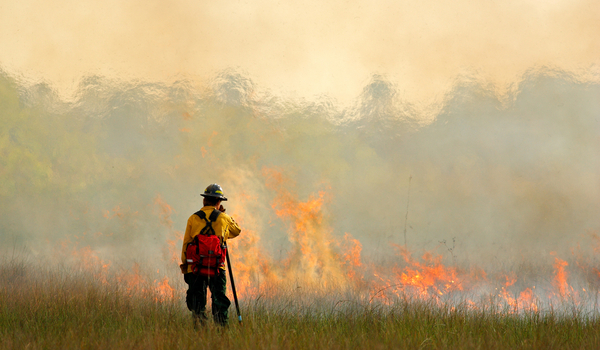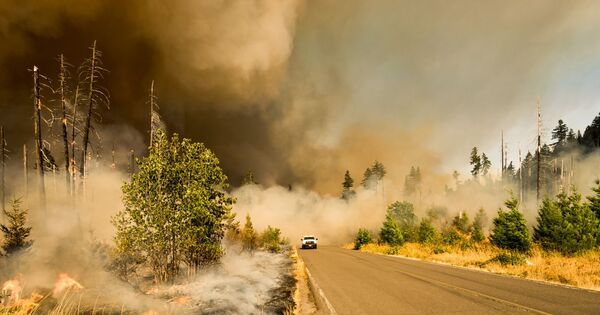According to an Emory University study published in Nature Mental Health, wildfires cause an increase in anxiety-related emergency department visits in the western United States, highlighting the concerning parallel trajectory of two escalating public health crises: mental health and climate change.
The study, funded by the National Institutes of Health and done by researchers at Emory’s Rollins School of Public Health, is one of the largest and most complete studies ever conducted on the link between wildfire exposure and anxiety disorders.
Analyzing satellite-driven data and nearly 1.9 million emergency department visits across five states (California, Arizona, Nevada, Oregon, and Utah) from 2007 to 2018, the researchers discovered that wildfire smoke events, which occur when wildfires become the primary source of ambient pollution within a ZIP code, were associated with a 6.3% increase in mental health-related emergency department visits.
The scary thing about climate change is it doesn’t have a clear boundary; you fear a lot about the unknown. Now we can use the knowledge we’ve gained to tell people there is no need to panic. When you receive a wildfire smoke alert, close your windows, limit your outdoor activities and don’t panic.
Yang Liu
In addition to this startling data, the study shows:
- Women, girls, and older adults are more susceptible to severe anxiety disorders associated with wildfire exposure.
- Men and boys also experienced an increase in anxiety disorders but only when linked to major smoking events.
- Evidence for enhanced disaster risk reduction and climate risk management strategies, including climate awareness and risk communication tailored for vulnerable populations.
What the researchers say:
“The scary thing about climate change is it doesn’t have a clear boundary; you fear a lot about the unknown. Now we can use the knowledge we’ve gained to tell people there is no need to panic. When you receive a wildfire smoke alert, close your windows, limit your outdoor activities and don’t panic. Those sorts of preventative measures can potentially benefit the entire population,” says study co-author Yang Liu, PhD, chair and Gangarosa Distinguished Professor in the Gangarosa Department of Environmental Health at Rollins.

“Mental health is one of the most common health concerns in the United States, and our research discovered significant links between wildfires and severe anxiety disorders. Many people are already struggling with mild to moderate mental health problems. If they wake up to find the sky shrouded with smoke, they’re likely to feel even more nervous,” says the study’s primary author, Qingyang Zhu, PhD, a postdoctoral scholar at the Gangarosa Department of Environmental Health.
Why it matters:
- Rising temperatures and altered drying patterns have significantly increased the global risk of wildfires in the last 20 years, resulting in larger burned areas and longer fire seasons.
- The western United States is notoriously fire-prone due to the frequent presence of fire weather conditions, increasing droughts, and the availability of fuel resources.
- Climate change has been associated with several psychiatric problems, including anxiety, depression, post-traumatic stress disorder, and eating disorders.
- Mental health diseases, especially anxiety disorders, have been a growing hazard to worldwide public health during the last three decades. According to the most recent Global Burden of Illness research, which was published in 2020, anxiety disorder was the 24th leading contributor to the global illness burden, out of 369 diseases.
This research was supported by the National Institute of Environmental Health Sciences of the NIH (ES034175 and ES027892). The NIH has established an NIH Climate Change and Health Initiative to reduce health threats from climate change, including mental health.
















